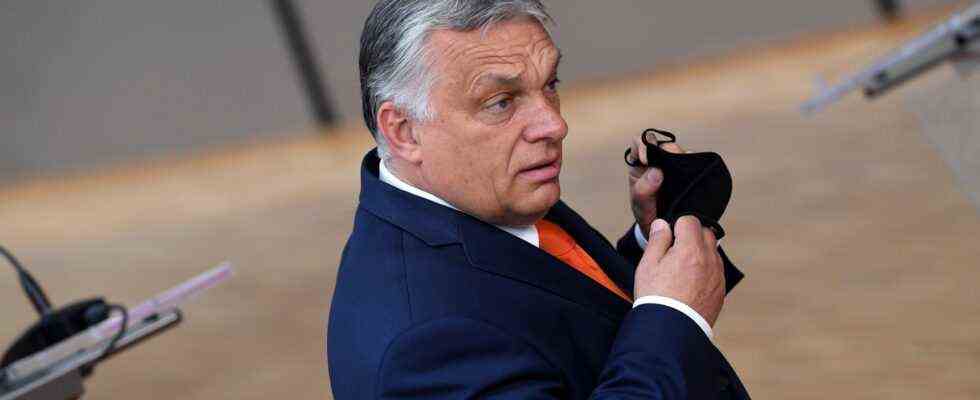Status: 06/24/2021 5:40 p.m.
Hungary’s Prime Minister Orban is sticking to his controversial law banning LGBTQ content. It has already entered into force. Some EU states are now demanding that Orban be shown clear limits.
The Hungarian Prime Minister Viktor Orban has ruled out the withdrawal of the controversial law restricting the information rights of young people with regard to homosexuality and transsexuality. The law has already been promulgated and is in force, Orban said shortly before the start of the EU summit in Brussels.
The law approved by the Hungarian parliament last week includes a ban on books, films and other media that are accessible to children and young people and that depict sexuality that differs from heterosexual ones. In addition, it bans advertising in which homosexuals or transsexuals appear as part of normality.
17 EU countries have protested
Orban again rejected criticism of the new regulations. The law ensures that parents can exclusively decide how they want to organize the sexual upbringing of their children, he said. It is not directed against homosexuality. He defends homosexual rights, Orban said.
The EU Commission and numerous other EU countries are of the opinion that the law discriminates against people on the basis of their sexual orientation. 17 states have protested against the law, which is why it should also be discussed at the EU summit.
Asselborn: “Have to show Orban the limit”
Luxembourg Foreign Minister Jean Asselborn expects a clear response from the European Union in view of the controversial law. “Orban plays with our values until he sees where the limit is – and we have to show him that,” Asselborn told the broadcaster NDR info.
At Orban, “hops and malt are lost,” said Asselborn. He is assuming that Orban “will no longer get on the European track”. The law is shameful and is clearly directed against non-heterosexual people. “But he’s too cowardly to say that.”
EU states divided over the consequences
Asselborn named a freeze on EU aid payments and a withdrawal of voting rights as possible consequences. However, the proceedings against Hungary under Article 7 of the EU treaties, which could lead to the withdrawal of voting rights, have been stalling for years due to the lack of a sufficient majority in the other EU states.
A new rule of law mechanism in EU budget law is also not yet applied because Hungary and Poland have appealed against it to the European Court of Justice.

